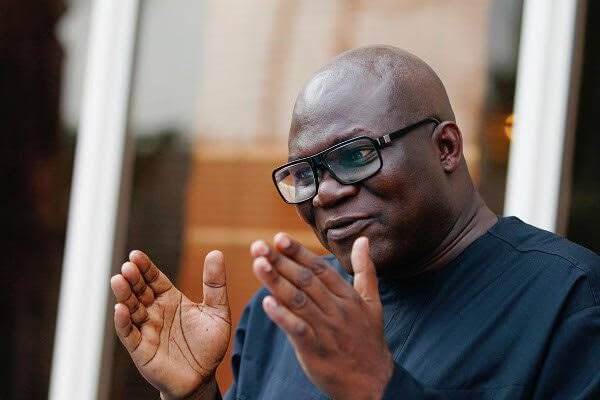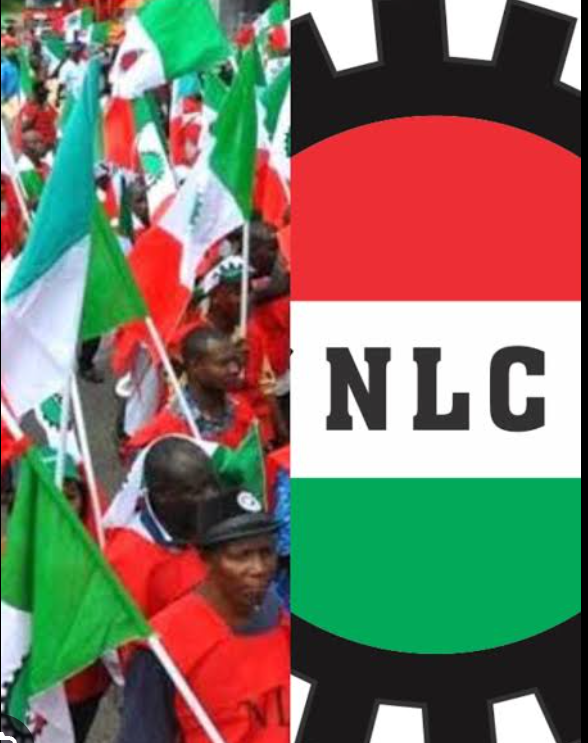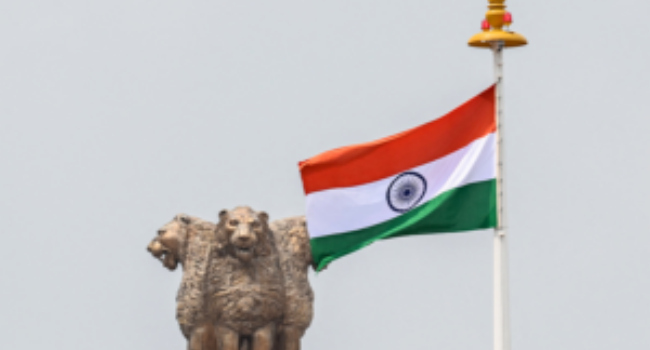News
Tariff Hike: TCN, DISCOs bicker over failing 20-hrs supply

With Band A customers expressing anger over the failure of electricity Distribution Companies, DisCos, to meet the 20-hour minimum supply, some communities have approached their respective DisCos, requesting to be downgraded to Band B.
The communities, Vanguard gathered, are insisting that since they were not getting the promised 20 hours per day, they should not be forced to pay the N225 per kilowatt hour tariff increase ordered by the Nigerian Electricity Regulatory Commission, NERC.
However, findings by Vanguard indicated it was not entirely the fault of DISCOs as the power allocation from the upstream value chain has declined significantly, making it difficult for the DisCos to meet up with the minimum supply benchmark.
Data supplied by Independent System Operator, at the weekend, showed that load allocation to the eleven DisCos stood at 2,989 Megawatts, a significant drop from the 4,200MW average needed to meet the tariff requirement.
The data indicated that Abuja Disco got the highest allocation of 461 MW, down from 611MW recorded a few days ago. It was followed by Ikeja Electric at 455MW, Eko DisCo at 387MW, Ibadan DisCo at 360MW, Benin DisCo at 245MW, and Enugu DisCo at 216MW.
Others were Port Harcourt DisCo 213MW, Kano DisCo 202MW, Kaduna Electric 195MW, Jos DisCo 170MW and Yola DisCo 85MW.
Meanwhile, a source in Eko DisCo said the company was meeting up with the prescribed minimum of 20 hours but explained that what they do is that on some days they supply more than the minimum, and they cut back the excess supply from the minimum supply the following day, a situation which may have left the consumers with the impression of under-supply.
He advised that the consumers should track average supply over a period of time.
TCN, DisCos trade blames
Meanwhile, the Transmission Company of Nigeria, TCN, has publicly disagreed with the DisCos over failure to meet the 20-hour minimum electricity supply demand. Benin, Ibadan, and Port Harcourt DisCos had in a notice to consumers attributed the failure to challenges faced by TCN.
Benin DisCo disclosed that problems at the Amukpe transmission station led to over seven hours of outage while faults at the Effurun transmission station also led to over eight hours of outage.
But TCN in a statement said that was not the true picture.
According to TCN General Manager, Public Affairs, Ndidi Mbah, “the incorrect attribution of these faults to TCN is clearly shown in the table on the release by IBEDC.
“For clarity, we note that on the 11th of April 2024, the Amukpe 33KV feeder tripped at 2:31 pm and was restored by 4.08 pm, within one hour and 54 minutes. The cause of the outage, which was clearly under BEDC purview, was an instantaneous earth fault caused by stormy weather, which was restored on trial reclosure after the rain had subsided.
“Still, on the 11th of April 2024, Effurun 33KV feeder tripped at 12:25 p.m., and it is still out. The cause of the tripping was an earth fault on the outgoing feeder upriser, also from the BEDC DISCO end”.
On Ibadan DisCo claims that TCN is responsible for its failure to deliver estimated hours of supply to Band A customers due to system outages and tripping on TCN’s feeders, Mbah said after investigation it was established that the feeders mentioned “are not within the TCN network. This means that most of the listed feeders in the publication are 11kV operated by IBEDC and completely outside TCN’s Operational Control and in IBEDC’s network.
“That the reasons given for the outage on IBEDC 11kV and 33kV are earth/over current faults, which have no bearing on TCN’s frequency control operations.
“That the statement by IBEDC has been verified by TCN’s regional management in Osogbo in conjunction with IBEDC Officials themselves and has been proven to be false, necessitating necessary corrections being made.
“While TCN sees this misinformation of IBEDC as a ploy to undermine and mislead the public against regular power supply, we remain focused on supporting the government’s move towards a more robust and efficient power supply”, she added.
Total supply remains insufficient — Consumer Network
In an interview with Financial Vanguard, weekend, the President, Nigeria Consumer Protection Network, Mr. Kunle Olubiyo, said: “What we are currently is a service-based tariff. Consumers should pay based on the value they derive. But even at the estimated peak supply of 5,800MW, it would still be difficult to meet the demand of 20 million – 30 million electricity consumers in Nigeria.
“Currently, some consumers in Band A have enough while others do not. For instance, in my area in Garki, Abuja, the Abuja DisCo has been able to provide us with not less than 22 hours of power supply daily. The level of outages is very minimal. But we cannot generalize because the people of Mararaba, still in Abuja may have less than 10 hours.
“However, I am pleased with the response of NERC. The regulator has been proactive in tackling issues, especially listening to consumers and sanctioning the DisCos, where necessary.
“But NERC should do more. It should compel the DisCos to provide details, including the Bands of consumers in receipts paid by consumers. This will enable them to know their bands because many people do not even know their bands. Many people started showing interest because of the removal of subsidy, which now makes electricity expensive for Band A consumers. Many consumers did not care before because power was relatively cheap.”
Band A, others were proposed in 2020 — PowerUp Nigeria
Similarly, in another interview with Financial Vanguard, the Executive Director, PowerUp Nigeria, Adetayo Adegbemle, who harped on the need to invest in infrastructure to deliver more power to consumers, said: “The Bands are already four years old.
They were introduced in 2020 along with the Service Based Tariffs, which says locations with advanced infrastructure and that can deliver more energy to consumers should be allowed to do, and the consumers pay a tariff that reflects the hours, or bands, they receive and enjoy.
“So, Band A with a minimum of 20 hours daily power supplies was introduced as the Premium band. Other locations within the country cannot enjoy as much energy because of weaker and inadequate infrastructure. They are also divided into Bands.
“So we have Band A which enjoys between 20 and 24 hours per day, Band B gets between 16 and 19 hours per day, Band C gets between 12 and 15 hours, Band D which gets 8 and 12 hours, and Band E gets a minimum of 4hours per day.
There is Band E in some locations as well, depending on the ability to get power to these places. When you look at it the kind of infrastructure in places like Maitama, Ikoyi, Surulere, Jos, and Asokoro cannot be compared with infrastructure in places like Mowe, Ibafo, Ologuneru, and a lot of newly developed sites.
“So, what the new tariff implies is that subsidy has now been withdrawn from Band A Customers, accounting for 15% of total customers on the grid. Let me also say that this subsidy removal affects only those in Band A. So, if you are not on Band A, you are not affected by the new tariff.
“As I said earlier, one of the major factors that determine these bands is the quality of infrastructure in these areas; another is the volume high of consumption of energy in these areas.
“One thing that is also common with these locations is that they are mostly affluent and high-income areas of society and they represent a disproportionately high share of energy consumed relative to their share of the customer population
“We have major industries also covered. Many of the maximum demand users (industries and productive users of electricity) are covered under Band A feeders, thereby catalyzing industry as a vehicle for economic development.
“This increased energy supply to these feeders will reduce their net energy spend because otherwise, they would have to depend on diesel generating sets, which cost more than two times that of grid energy per kWh.”
DisCos to set up response teams
He said: “DisCos are mandated to set up a rapid response team to ensure effective service delivery on the committed minimum hours of supply to each service Band commencing with Band A feeders.
Where a DisCo fails to meet the committed service level of a feeder for consecutive seven (7) days, the feeder shall be automatically downgraded to the recorded level of quality of supply.
“We still have a huge metering gap unfilled, and this is one of the reasons many Nigerians are kicking against the removal of this subsidy. But I understand that the Commission is working on the liberalization of Metering. I would have recommended what I called Meter Franchising.
It is more like the present Meter Assets Providers, but in this case, investors can take up a Feeder on a Franchise, and install Meters to every Customer on the Feeder. They can recoup their money via recharge. The Commission can also chart a cost recovery for such investment.”
Reverse hike to avert further misery, suffering — Electricity workers
Meanwhile, workers in the nation’s power sector have asked the Federal Government to stop deceiving Nigerians over the 300 percent hike in electricity tariff, and called for it reversal to avoid further socioeconomic woes.
“While advising the government to come clean on the hike and not being economical with the truth, they described the hike as nothing but another anti-people policy.“Under the aegis of the National Union of Electricity Employees, NUEE, the workers warned that if any of their colleague is attacked in the line of duty over the tariff hike, they would shut down power supply nationwide without notice.
“In a statement titled “Hike in electricity tariff I – Danger looms”Acting General Secretary of the Union, Dominic Igwebike, stated: “NUEE is one of the critical stakeholders in the electricity sector and it has been our major concern to see the delivery of constant, sustainable, clean, and affordable Electric Power to our dear Nation.
“There has not been any meaningful improvement since after the privatization of the Power Sector. The country has an installed capacity of about 14,000MW but generates about 4,803MW. But , Nigeria needs at least 30,000MW to reach sufficiency.“
“The recent hike in electricity tariff from N68 /kwh to N225 /kwh is absurd in a country where the majority of the masses are grappling with basic survival and an electricity access rate of about 55 percent.“
“The justification given by NERC, is that the hike is attributed to only Band A consumers who make up only 15 percent of electricity consumers and utilize 40 percent of the nation’s electricity consumption.
Vanguard News
News
Igbos to boycott Arise TV over Abati’s uncouth statement

The Indigenous People of Biafra lawyer, Ifeanyi Ejiofor, has called on Ndigbo to boycott Arise TV until its anchor, Reuben Abati, tenders an unreserved apology.
The former Special Adviser on Media and Publicity to former President Goodluck Jonathan, Reuben Abati, recounted during a morning programme how a former minister could not buy land for his wife in Igbo land.
Abati’s statement that Ndigbo does not sell land to non-indigenes generated condemnation from the people of the South East region.
Most X users of Igbo extraction accused Abati of committing ethnic bigotry against the group.
In reaction on Friday, on his X handle, Ejiofor alleged that he had previously taken on the former presidential spokesman for his alleged anti-Igbo statement.
“When I confronted Abati frontally on a live television interview (TheMorningShow) a few years back about his deep-rooted hatred for Igbos and our struggle for freedom from enslavement within Nigeria’s political arrangement, I was fully seized of the disturbing facts of his ethnic bigotry. It is inborn in him; thank God he could not hide it any longer,” he narrated.
The IPOB lawyer demanded Arise TV’s owner, Nduka Obaigbena, mandate Abati to apologize to Ndigbo. He called on South East indigenes to boycott the station if Abati failed to tender a public apology.
“Reuben Abati must tender an unreserved public apology to Ndi Igbo, but if Nduka Obaigbena condones his anti-Igbo sentiment (Igbophobia), then, this should be a convenient point for Igbos to boycott, in its totality, the promoting of all programmes on Arise TV platforms,” Ejiofor stated.
News
Minimum Wage: Our deadline remains December 1 -NLC insists

The national leadership of the Nigeria Labour Congress (NLC) has insisted its December 1, 2024, deadline for state governors to implement the new minimum wage remains unshakeable.
The Labour Union who disclosed this in a statement issued by NLC’s Head of Protocol and Public Relations, Benson Upah warned that non-compliance with the directive will not be tolerated.
Ubah emphasized that the ultimatum remains unchanged, urging state governments to finalize agreements with labour unions before the deadline, noting that states like Sokoto, Zamfara, Taraba, and Plateau have taken significant steps to comply.
Explaining further, he stated that Sokoto has initiated wage adjustment proposals, while Taraba and Plateau recently approved an N70,000 minimum wage.
Similarly, Zamfara state has put in plans for implementation after verifying its workforce.
However, states such as Cross River, Osun, and Imo remain in negotiation or unresponsive.
This has raised concerns about meeting the deadline set by NLC.
The NLC and the Trade Union Congress (TUC) continue to monitor compliance across the nation, advocating for fair wages amidst rising inflation.
News
Indian man wakes up on funeral pyre

An Indian man awoke on a funeral pyre moments before it was to be set on fire after a doctor skipped a postmortem, medical officials said Saturday.
Rohitash Kumar, 25, who had speaking and hearing difficulties, had fallen sick and was taken to a hospital in Jhunjhunu in the western state of Rajasthan on Thursday.
Indian media reported he had had an epileptic seizure, and a doctor declared him dead on arrival at the hospital.
But instead of the required postmortem to ascertain the cause of death, doctors sent him to the mortuary, and then to be burned according to Hindu rites.
Singh, chief medical officer of the hospital, told AFP that a doctor had “prepared the postmortem report without actually doing the postmortem, and the body was then sent for cremation”.
Singh said that “shortly before the pyre was to be lit, Rohitash’s body started movements”, adding that “he was alive and was breathing”.
Kumar was rushed to hospital for a second time, but was confirmed dead on Friday during treatment.
Authorities have suspended the services of three doctors and the police have launched an investigation.
AFP
-

 News19 hours ago
News19 hours agoReps Demand Details Of Project Undertaken From Ministry Of Solid Minerals In 2024 Budget
-

 Education23 hours ago
Education23 hours agoBREAKING! END of road for Fubara as FG halts allocation
-

 News19 hours ago
News19 hours agoPDP leaders, critical stakeholders endorse Hon. Teejay Yusuf for National Chairman
-

 News23 hours ago
News23 hours agoEnugu ready to provide evidence against Ekpa, hails arrest
-

 Metro3 hours ago
Metro3 hours agoBusinessDay Journalist Finally Regains Freedom From ‘One-Chance’ Kidnappers In Abuja
-

 Metro7 hours ago
Metro7 hours agoCourt remands 113 foreigners over alleged cybercrime
-

 News9 hours ago
News9 hours agoJapa: We’ve discovered over 10,000 fraudulent foreign student acceptance letters – Canadian Authorities
-

 News8 hours ago
News8 hours agoFG reinstates Ikechebelu and Modebelu as UNIZIK Acting VC and Registrar








